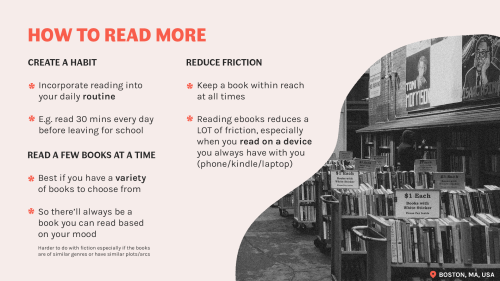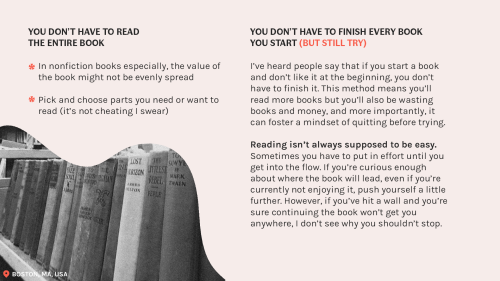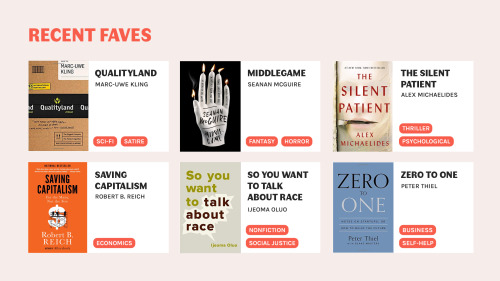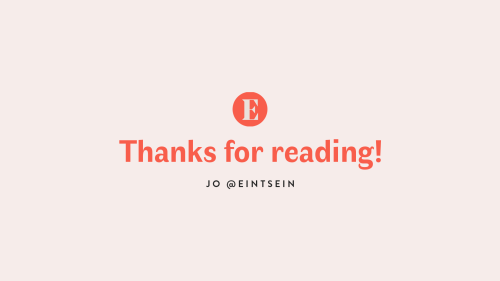15/100 DAYS OF PRODUCTIVITY

15/100 DAYS OF PRODUCTIVITY
• attended volleyball practice (it went well and even found an old friend of mine who has basketball classes there)
• took some time to bujo/journal
• worked on some biology notes (even though the test was last week!)
• did my biology homework
• did my english (C2) homework
More Posts from Oliviasstudyblrshit and Others
- ̗ ̀ study break ideas ̖ ́-
if you have 5 minutes...
watch a TED talk
light a candle
paint your nails
put on a hair/face mask
splash your face with cold water
walk around your house
stretch
have a small snack
make a cup of tea/coffee
clear your desk
if you have 10-15 minutes...
watch a longer TED talk
watch a youtube video on studying/something educational
do some yoga
go for a quick run
have a shower
make a smoothie
power nap
workout
organise your desk
if you have 20-35 minutes...
watch a longer TED talk
watch one short episode of a tv programme
do a longer workout
go for a longer run
go for a walk
bake something
call a friend
if you have 40-60 minutes...
watch a documentary
watch one longer episode of a tv programme
go for an even longer walk/run
have a bath
have a one hour nap to help you remember things
Linguistics and Language Podcasts
Looking for podcasts about language and linguistics? Here’s a comprehensive list with descriptions! I’ve also mentioned if shows have transcripts. If there are any I missed, let me know!
Linguistics
Lingthusiasm A podcast that’s enthusiastic about linguistics by Gretchen McCulloch and Lauren Gawne (that’s me!). Main episodes every third Thursday of every month, with a second bonus episode on Patreon. (Transcripts for all episodes)
Talk the Talk Every week Daniel, Ben, and Kylie cover the news in linguistics and tackle a particular topic.
The Vocal Fries Every episode Carrie Gillon & Megan Figueroa tackle linguistic discrimination in relation to a particular group. (Transcripts for some episodes)
En Clair A podcast about forensic linguistics from Dr Claire Hardaker at Lancaster University. Episodes released monthly, with a range of topics from criminal cases to literary fraud. (Transcripts for all episodes)
Accentricity From Sadie Durkacz Ryan, a lecturer in sociolinguistics at Glasgow University. Season one has six episodes.
Field Notes Martha Tsutsui Billins interviews linguists about their linguistic fieldwork.
Language
The Allusionist Stories about language and the people who use it, from Helen Zaltzman (Transcripts for all episodes) (my review)
Grammar Girl Episodes are rarely longer than 15 minutes, but they’re full of tips about English grammar and style for professional writing, and more! (Transcripts for all episodes).
The World in Words From PRI, The World in Words has been delivering wonderful interview-drive stories about language and life since 2008.
Conlangery Particularly for those with an interest in constructed languages, they also have episodes that focus on specific natural languages, or linguistic phenomena.
Subtext a podcast about the linguistics of online dating.
Canguro English a podcast about language for people learning languages.
English
History of English Meticulously researched, professionally produced and engaging content on the history of English. I have already reviewed it three times (episodes 1-4, episodes 5-79, bonus episodes).
Lexicon Valley Hosted by John McWhorter, with a focus on English.
That’s What They Say Every week linguist Anne Curzan joins Rebecca Kruth on Michigan public radio for a five minute piece on a quirk of English language.
A Way With Words A talk-back format show on the history of English words, cryptic crosswords and slang.
Dictionaries
Word For Word From Macquarie dictionary, with a focus on Australian English.
Fiat Lex A podcast about making dictionaries from Kory Stamper & Steve Kleinedler.
Words/etymology
Word Bomb Hosts Pippa Johnstone and Karina Palmitesta explore one explosive word per week, using particular words for a deep dive into linguistic and social issues.
Words for Granted In each episode Ray Belli explores the history of a common English word in around fifteen minutes.
Very Bad Words A podcast about swearing and our cultural relationship to it.
Lexitecture Ryan, a Canadian, and Amy, a Scot share their chosen word each episode.
Wordy Wordpecker Short weekly episodes from Rachel Lopez, charting the stories of English words.
Animology Vegan blogger Colleen Patrick Goudreau uses her love of animals as a starting point for exploring animal-related etymologies.
Translation
Speaking of Translation A monthly podcast from Eve Bodeux & Corinne McKay.
LangFM Stories of people from the world of language, including interpreters, translators, dialect coaches and many more.
Troublesome Terps The podcast about the things that keep interpreters up at night.
Back catalogues and Odds & Ends
There are also a number of podcasts that have only a few episodes, are no longer being made, or are very academic in their focus:
Language Creation Society Podcast (8 episodes, 2009-2011)
Given Names (four part radio series from 2015, all about names. My review)
Speculative Grammarian Podcast (from the magazine of the same name, about 50 episodes from Dec 2009-Jan 2017)
Linguistics Podcast (on YouTube, around 20 episodes in 2013 introducing basic linguistic concepts)
Evolving English: Linguistics at the Library (8 episodes 2018), from the British Library.
How Brands are Build (season 1 of this show focuses on brand naming)
The Endless Knot is not strictly a language podcast, but they often include word histories, fans of the Lingthusiasm colour episode may find their colour series particularly interesting
Word of Mouth (BBC 4, also available as a podcast)
LingLab (very occasionally updated podcast from graduate students in the Sociolinguistics program at NC State University)
Silly Linguistics (ad hoc episode posting, but episode 7 is an interview with Kevin Stroud for History of English fans)
WACC Podcast (guest lectures at Warwick Applied Linguistics)
Sage Language and Linguistics
Let’s Talk Talk
Queer Linguistics has a couple of episodes, with a bit of classroom vibe
GradLings An occasionally-updated podcast for linguistics students at any stage of study, to share their stories and experiences.
This is a completely revised listing from March 2019, with some sporadic updates. I’m always excited to be able to add more podcasts to the list, so if you know of any linguistics/language podcasts not here, please let me know! (I usually wait until a show has at least 3 episodes before I add it to the list)
Beginner Japanese Resources

I’ve seen quite a lot of these going around, and have definitely taken quite a few pages out of their books, but I thought I had some bookmarks I’d like everyone to know more about, even if they already did. ^^ If you think something is wrong, or know something is wrong, then please tell me!
g r a m m a r
Tae Kim’s Guide to Japanese Grammar (easy acquaintance with grammar, but not much in-depth)
IMABI (best free grammar resource but too much information for beginners, or so it’s said. still very helpful.)
Tim’s Takamatsu/ Tim Sensei’s Corner (also good. i heard of someone who printed out the older website and got fluent in Japanese with this, so it’s probably worth checking out)
Dictionaries of Japanese Grammar (hands down the best grammar resource, bit pricey or you could just download these PDFs).
Bunpro (good for interactive grammar studies, free until may 10 and there’s a one month free trial for subscription after that)
g r a m m a r / b l o g s
Japanese Ammo (native speaker and tutor’s blog, she also has a Youtube channel here)
Maggie-Sensei (grammar articles are a bit mismatched but good for little references)
Tofugu (probably the best culture and resources blog I’ve come across. a must.)
Romy-sensei (Japanese teacher, blog is VERY helpful)
DJT Guide (for a beginner outlook on how to start and where, named because of the daily japanese thread that I don’t have too much information on but it’s a daily thread where people learning japanese shared resources/ progress/ motivational whatevers)
i n t e r a c t i v e l e a r n i n g
Delvin Language (shows clips and asks you to identify what’s spoken. Very good for listening and you can slow them down, though use that sparingly. kinda spammy tho.)
Japanese Class (found this a few years ago, but it’s a gamified site that helps you learn vocabulary with regular exposure. recommended.)
Japanese in Anime and Manga (for fellow otakus. a bit hard for me to navigate, but it’s along a similar vein as the above site. offered in spanish, chinese, korean and french, besides english.)
Erin’s Challenge (recommended for upper beginners, or lower intermediates, but there’s a lot to do now as well! very good for listening and reading- with transcripts and subtitles- in the form of a school life role-play. offered in quite a few other languages.)
Duolingo (not a lot of information, nor is it very in-depth. good for dabbling in, maybe. try the website, not the app, if you really want to use it.)
LingoDeer (BEST app for learning the language. You could do a lot on it alone, and it can probably take you up to a little above N5, but don’t keep using it standalone for long! also offers chinese, korean and now vietnamese!)
t e x t b o o k s
TextFugu (tofugu’s online textbook, made specifically for self-study, though it works good in conjunction with classes and tuition)
Genki (widely used, most recommended by people)
Minna no Nihongo (also very popular. some consider it better than genki.)
Japanese for Busy People (especially if you’re a little short on time)
Japanese for Everyone (generally good reviews, with a lot of vocabulary - an estimated 2500 maybe? convert djvu to pdf to use.)
k a n j i (course books)
Kodansha Kanji Learner’s Course aka KKLC (a kanji learning course with vocabulary in it.)
Remembering the Kanji (aka the acclaimed ‘Japanese learner’s beginning holy grail’. but it totally depends upon what you’d prefer tbh. can make you recognise kanji and what they could stand for, but that’s about it.)
Kanji Damage (aka remember 1700 Kanji with offensive yo mama jokes. ridiculous? hilariously, it does work for some.)
WaniKani (people swear by this. you can try out the first three levels to see the magic, even if you don’t think it’s your style.)
l i s t e n i n g
mykikitori (for Genki 1 apparently)
Japanese Pod 101 (a good online course in itself, but the podcasts are the most helpful of the lot. @lovelybluepanda has made them available here.)
o t h e r s
DJT Resources (sub-link of DJT Guide but probably has all the Japanese resources you could ever want!)
Nihongo e Na (more resources, probably worth checking out)
Nihongo Resources (along a similar vein with the purpose in its name)
Jakka (the site is entirely in Japanese, but it has kanji for grade school, broken up appropriately)
Happy Lilac (kind of the same as above with kanji stroke order practice material, meant for Japanese children)
This may be repeated, because similar, if not the exact same, resources in DJT are categorised neatly here. @lovelybluepanda again.
check more masterposts, some of which have been compiled here by @languagesandshootingstars
日本語の森 (Nihongo no Mori) (Good Youtube videos for beginners and advanced learners alike! They even have their lessons separated by JLPT levels!)
While that’s it for all the Japanese resources I feel do not go around a lot now, I did compile some points Japanese beginners might be doubtful in and what I had found from my own research.
Genki or Minna no Nihongo?
Minna no Nihongo has more vocabulary (2100-2200 for 初級 levels i.e. the beginner books) while Genki boasts a little lesser (1700 for genki 1+2). Minna no Nihongo has allegedly more grammar coverage ( 〜ように、〜ために- used in native speech). However, the book is entirely in Japanese (there is a separate book for English explanations) and there is a separate book for Kanji too. The Answer Key is at the back of the book, unlike Genki which has a separate Answer Key.
Genki is said to be more beginner-friendly than Minna no Nihongo, but if you put your mind to it, you can do either tbh. Just choose any book and stick with it!
** If you’re planning to study in Japan anytime, remember that Japanese teachers usually use Minna no Nihongo. But better do your research as well.
Kanji?
Everyone can put in all the work they like in Kanji, but at the end of the day, Kanji is not the only thing about Japanese. You can totally use Anki or Quizlet or Memrise to drill it in, maybe even make your own flashcards and put in extra work! But to really get fluent in the language, talking to native speakers (helpful guide by @jibunstudies) is very important. Even if you don’t fully understand what they’re saying, you acquire more vocabulary and will get the nuance of basic sentences! And you get friends too, if you’re lucky!
Just for reference and no pressure, here’s the general requirement to pass JLPT levels, if you’re ever planning to take them!
Level Kanji Vocabulary Listening Hours of Study N5 ~100 ~800 Beginner 150 (estimated) N4 ~300 ~1,500 Basic 300 (estimated) N3 ~650 ~3,750 Lower Intermediate 450 (estimated) N2 ~1000 ~6,000 Intermediate 600 (estimated) N1 ~2000 ~10,000 Advanced 900 (estimated)
(… yeah, that looks way better on a computer ok.) Remember, estimated doesn’t mean it will take you that much time exactly. Everyone learns differently! And ‘talent’ can be overcome by enough hard work so ファイト!
頑張れ !





my masterpost | my studygram | ask me anything
[click images for high quality]
[transcript under the cut]
Other advice posts that may be of interest:
All About Procrastination
How To Study When You Really Don’t Want To
Common Study Mistakes
7 Strategies to Improve Concentration
How to make your notes aesthetic
7 Ways to Power Up Your Notetaking
Keep reading








Read More, Read Better
Many of us are looking for more ways to enjoy our time at home in these stressful circumstances. Some of us have turned to books. But how can we make sure we get the most out of them?
Keep reading


9.24.19
Fall colors for fall days 🍁🍂
Have you tried studying with Korean study streamers? Search up 실시간 공부방송 or 같이 공부해요. They stream live, study about 10~13 hours a day (Korean time zone). If you have webcam, you can join them too.
omg this is something i didn’t know i needed until right this second?!?? thank you for the rec!

old digital planner layout.

desk tour video ! working & studying from home in this space has been a joy, but i do miss being at my university ...... someday soon ill be back there
-
 35mmcamerasight reblogged this · 5 years ago
35mmcamerasight reblogged this · 5 years ago -
 35mmcamerasight liked this · 5 years ago
35mmcamerasight liked this · 5 years ago -
 anxiouslyfree liked this · 5 years ago
anxiouslyfree liked this · 5 years ago -
 honibxx liked this · 5 years ago
honibxx liked this · 5 years ago -
 andii2602 liked this · 5 years ago
andii2602 liked this · 5 years ago -
 devilnduck liked this · 5 years ago
devilnduck liked this · 5 years ago -
 crazyaboutlanguages liked this · 5 years ago
crazyaboutlanguages liked this · 5 years ago -
 suffering--ghost liked this · 5 years ago
suffering--ghost liked this · 5 years ago -
 canatrix liked this · 5 years ago
canatrix liked this · 5 years ago -
 studyblease reblogged this · 5 years ago
studyblease reblogged this · 5 years ago -
 ddianaalek liked this · 5 years ago
ddianaalek liked this · 5 years ago -
 j4dior liked this · 5 years ago
j4dior liked this · 5 years ago -
 swee-thea-rts liked this · 5 years ago
swee-thea-rts liked this · 5 years ago -
 darkcollectivetimemachine liked this · 5 years ago
darkcollectivetimemachine liked this · 5 years ago -
 thecatprince liked this · 5 years ago
thecatprince liked this · 5 years ago -
 randomstudythngh liked this · 5 years ago
randomstudythngh liked this · 5 years ago -
 unmotivatedanon liked this · 5 years ago
unmotivatedanon liked this · 5 years ago -
 lumosstudies liked this · 5 years ago
lumosstudies liked this · 5 years ago -
 laughter-of-life liked this · 5 years ago
laughter-of-life liked this · 5 years ago -
 endymionstudies reblogged this · 5 years ago
endymionstudies reblogged this · 5 years ago -
 oliviasstudyblrshit reblogged this · 5 years ago
oliviasstudyblrshit reblogged this · 5 years ago -
 big-etsh liked this · 5 years ago
big-etsh liked this · 5 years ago -
 beautifullifestylequotesfis-blog liked this · 5 years ago
beautifullifestylequotesfis-blog liked this · 5 years ago -
 savagebeastrecords liked this · 5 years ago
savagebeastrecords liked this · 5 years ago -
 littlewitch1923 liked this · 5 years ago
littlewitch1923 liked this · 5 years ago -
 colubriduniverse liked this · 5 years ago
colubriduniverse liked this · 5 years ago -
 street-lady liked this · 5 years ago
street-lady liked this · 5 years ago -
 mrsbigblue reblogged this · 5 years ago
mrsbigblue reblogged this · 5 years ago -
 mrsbigblue liked this · 5 years ago
mrsbigblue liked this · 5 years ago -
 leylahfalace liked this · 5 years ago
leylahfalace liked this · 5 years ago -
 starruline liked this · 5 years ago
starruline liked this · 5 years ago -
 alettereminuscole reblogged this · 5 years ago
alettereminuscole reblogged this · 5 years ago -
 opheliacomedown liked this · 5 years ago
opheliacomedown liked this · 5 years ago -
 fox-lkms liked this · 5 years ago
fox-lkms liked this · 5 years ago -
 uknowwhaticameherefor liked this · 5 years ago
uknowwhaticameherefor liked this · 5 years ago -
 alettereminuscole liked this · 5 years ago
alettereminuscole liked this · 5 years ago -
 amandaswork reblogged this · 5 years ago
amandaswork reblogged this · 5 years ago -
 blozzoming reblogged this · 5 years ago
blozzoming reblogged this · 5 years ago -
 stepawayfromthecarrot liked this · 5 years ago
stepawayfromthecarrot liked this · 5 years ago -
 honeybunsbeemilk liked this · 5 years ago
honeybunsbeemilk liked this · 5 years ago


